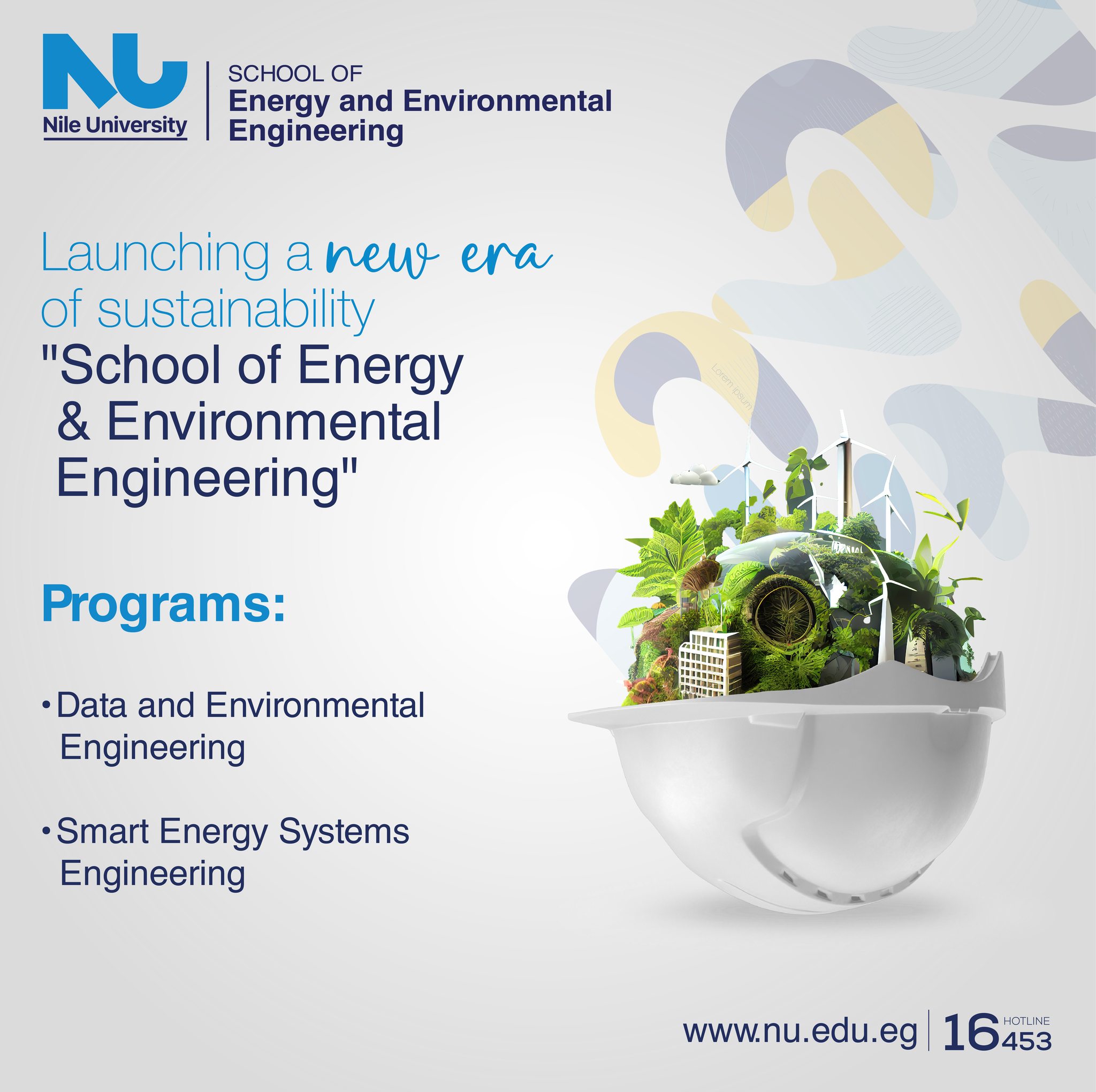
School of Energy and Environmental Engineering
School of Energy and Environmental Engineering
NU’s very own School of Energy and Environmental Engineering aims to empower students towards innovation, addressing global challenges, and creating sustainable solutions through updated educational programs and impactful scientific research, while upholding professional ethics and societal values.
A Bachelor's degree from the School of Energy and Environmental Engineering is 8 main academic semesters, equivalent to 148 credit hours.
Mission
The school of EEE aims through its state-of-the-art programs:
- To provide distinguished education that equips graduates with professional and research skills in the fields of energy and environmental engineering.
- To qualify students for life-long learning, leadership, innovation, and entrepreneurship with a commitment to professional ethics and social values.
- To enable graduates to conduct world-class research that contributes to the environmental conservation and energy security within the framework of the technology-based economy and sustainable development.
Vision
The school of EEE is an institution with a vision to maintain a profound impact on teaching, research, and entrepreneurship in the fields of energy and environmental engineering within an integrated system for energy security, sustainable development, and environmental balance.
Why EEE?
The School of Energy and Environmental Engineering offers students the opportunity to study core specializations for development and sustainability, Data and Environment Engineering, and Smart Energy Systems Engineering.
With the rapid evolution of data collection and analysis technology, companies and institutions are investing in data analysis capabilities to keep up with developments and continuous competition.
The program includes a comprehensive set of engineering skills required in the job market to build engineering systems for collecting data necessary for conducting environmental impact assessments according to the requirements of the Ministry of Environment and similar executive bodies in other countries.
In parallel with the on-going rapid development of energy usage technology in commercial, industrial, and residential facilities alike, companies and institutions are investing in modern digital systems to achieve optimal energy use and reduce costs to keep up with developments and competition.

